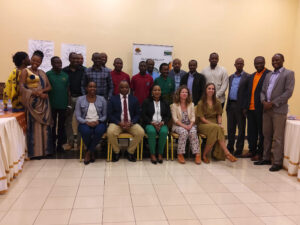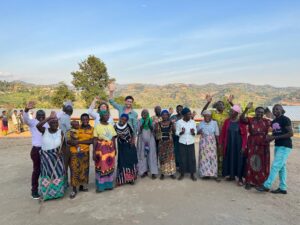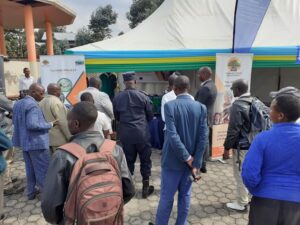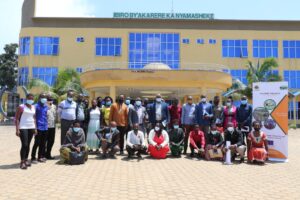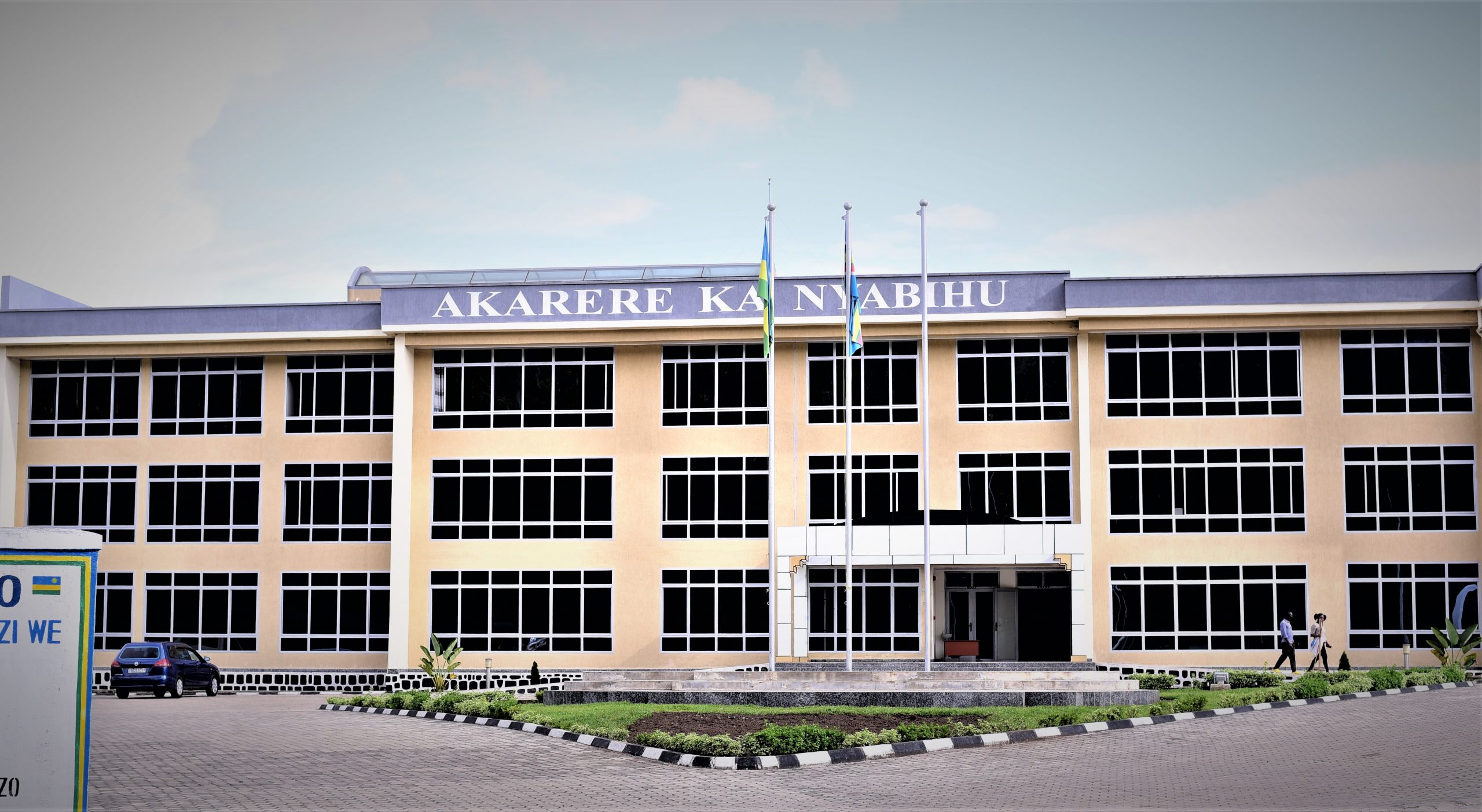
Mvura Nkuvure (community-based sociotherapy, meaning “Heal me, I heal you” in Kinyarwanda) was officially introduced in Nyabihu district under the Tujyane project in September 2020. That is when sociotherapists started recruiting community-based sociotherapy (Mvura Nkuvure) participants. Since then, the Tujyane project team, local leaders and sociotherapists have been working hard together to ensure Mvura Nkuvure sessions run smoothly and effectively despite the impact of COVID-19.
According to the Rwanda Reconciliation Barometer published in 2020, Nyabihu district was among the first ten districts where individual healing is still at a low level (healing from the wounds of the past and experience of reconciliation in one’s life).
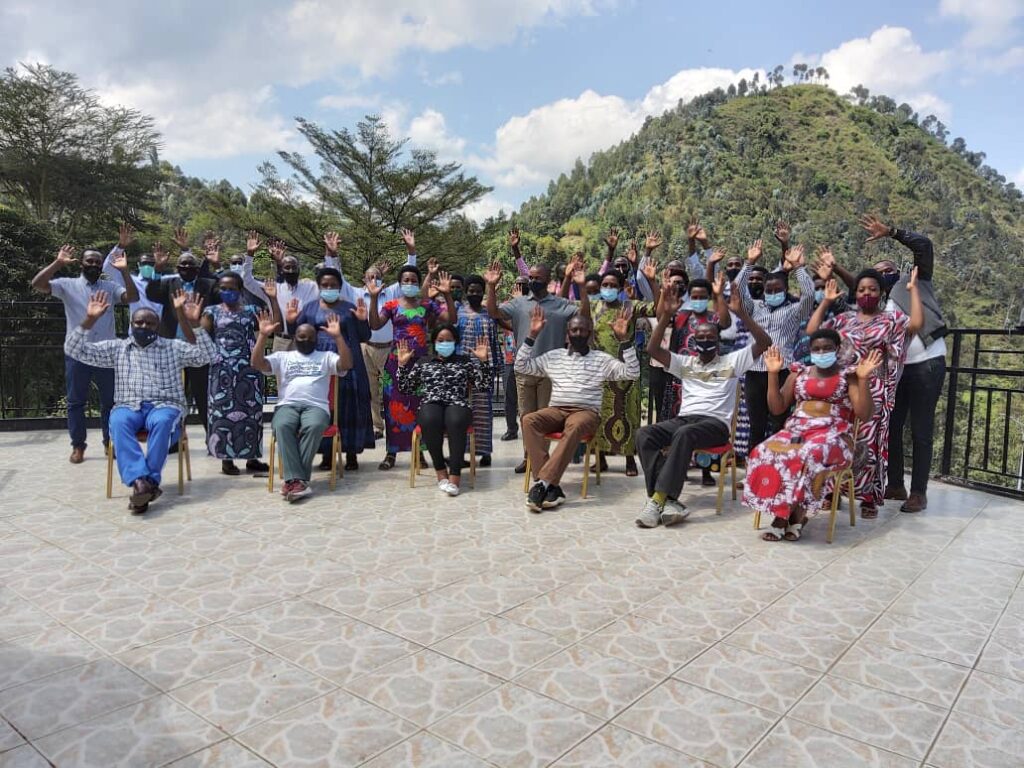
Mvura Nkuvure in Nyabihu district aims at building sustainable peace through contributing to the successful reintegration of ex-prisoners and mitigating the negative impacts of intergenerational legacies of the genocide: transmission of trauma, violence and divisionism in Rwanda.
Since 2020, two rounds of Mvura Nkuvure have been facilitated and around 452 participants have successfully completed all 15 sessions of these rounds. Mvura Nkuvure is being implemented in three sectors of Nyabihu district: Mukamira, Jenda and Bigogwe; participants are from 14 cells within Nyabihu.
Converstaions with people involved with Mvura Nkuvure in Nyabihu district, suggests that it continues to be a useful community approach. Participants believe Mvura Nkuvure will contribute not only to individual psychological healing but also social healing, thus repairing the social fabric of the communities involved.
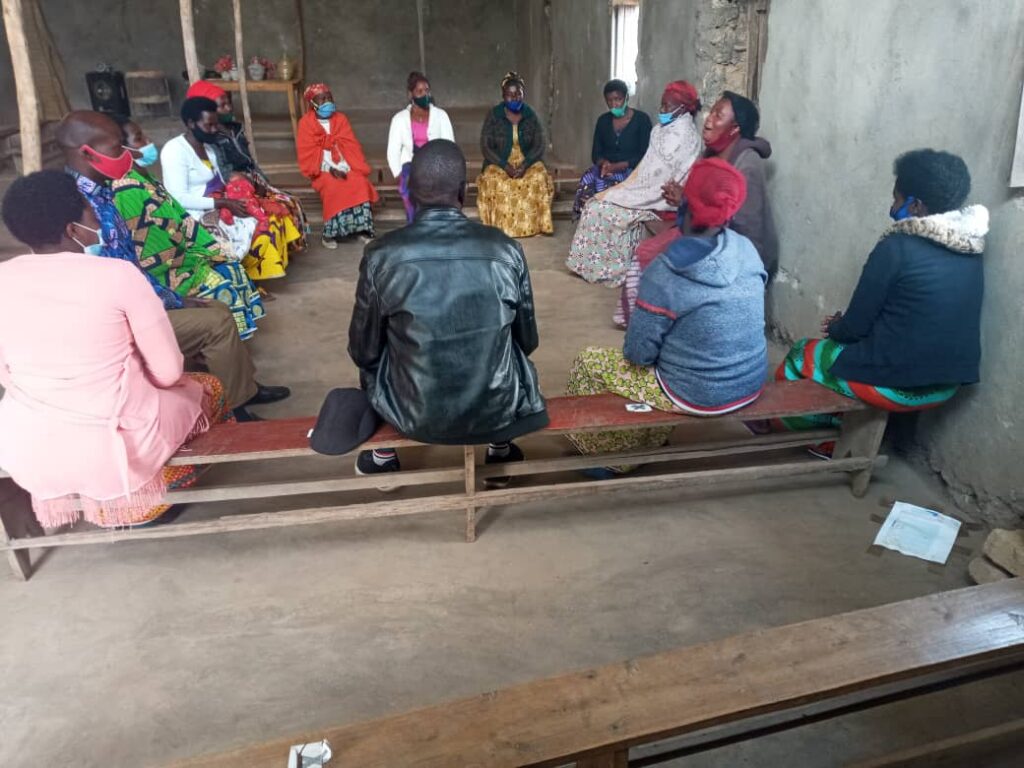
Here is what some stakeholders have said:
“…I strongly believe that Mvura Nkuvure came just for me. The first time I was invited to attend Mvura Nkuvure, I didn’t want to go: reason being that I thought – since it was a community initiative my wife might report me to local authorities, but after joining I realized that I was wrong and had to ask for forgiveness. I was wrong […] with Mvura Nkuvure I have learnt to make the right decisions and build a new future” Vedaste Habiyambere/ group participant, married to Beatrice Habiyambere
“…That’s true, he has completely changed. Before joining Mvura Nkuvure he would say, “Sorry my wife, I have changed my mind, please forgive me,” – and that would only last for a few days. But now I can assert that he is a new person with new mind set. His behavior testifies to it.” – Beatrice Habiyambere, married to Vedaste Habiyambere
“I was about to commit suicide. I had no mental safety and I hated to be in social gatherings. But thanks to Mvura Nkuvure I now attend social functions, and at other events in my community I feel confident and I am safe.” – Immaculle Uwimana/ group participant
“…I am a church leader in my community, but I could not understand the importance of gender equality. Now I take time to talk to my daughter and wife. Now we complete and support each other. I can share my testimony with you; I have so far helped other two families.” – Donat/ group participant
“…I shared my sorrow with community leaders, with my church brothers and sisters, and none of them helped me – it didn’t work. Mvura Nkuvure came as a special approach; it helped me, not through orders or laws as local leaders would suggest. Instead, Mvura Nkuvure helped me through safe space, open dialogue and sharing my bitter experiences with other group members…” – Josiane Mukeshimana/ sociotherapist
“I was blessed to be part of Mvura Nkuvure. I was about to completely lose hope about my future, but at the time this approach was introduced, I realized that it was the right time. I feel confident and have hope for tomorrow” – Faustin Nyombayile Gapira/ sociotherapist
“…Imagine! If the executive secretary would come to my home every single week, but now he may only come once a year, that is a tangible result of Mvura Nkuvure…” Norbert Baziyaka/ sociotherapist
“… The Safety phase of Mvura Nkuvure helped me a lot to understand the importance of mental safety. Since then I decided to strive for mental safety” – Gisele Uwishema/ sociotherapist
“… There is now a clear orientation that Mvura Nkuvure is giving. I can say. For the district to have a bright future it needs to have a safe population, mentally speaking” – Ndayisaba/ executive secretary of Rubaya cell, Mukamira sector in Nyabihu.
“…for the good results we are seeing currently thanks to Mvura Nkuvure, we should be proud. I commit to facilitate the process of civil marriage for Vedaste and Beatrice. I will pay all involved costs. This is a good result.” – Marcel Ndandu/ executive secretary of Mukamira sector in Nyabihu.
“…During COVID-19, we have seen its importance. We thank the Tujyane Project for having introduced Mvura Nkuvure in Nyabihu district. We really appreciate its support in mental healing.” – Benjamin Kamanzi/ Permanent Secretary of the Development Joint Action Forum (DJAF) in Nyabihu district.
“…Mvura Nkuvure came at the right moment for the right population. We are striving for unity and reconciliation and I can definitely say that Mvura Nkuvure is a useful approach to promote the values of Ndi Umunyarwanda and principles of unity and reconciliation.” – Pascal Simpenzwe/ Vice Mayor in charge of Social Affairs in Nyabihu district
Reporting by Felibien Hirwa Tuzayisenga and Editing by Anna Gwin

